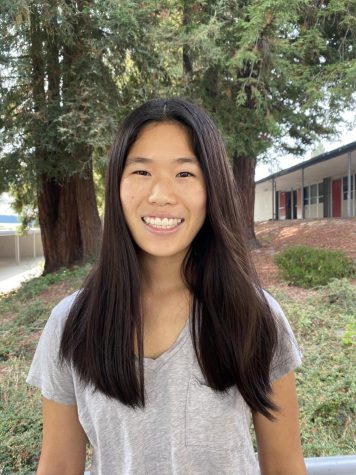Trump Deportation Policy Hits Home
September 17, 2019
While the Trump administration has already separated families at the border and thrown children into “cages” with abhorrent living conditions, it has managed to top its list of egregiousness: on August 7, the U.S. Citizenship and Immigration Service (USCIS) announced a change in its immigration policies, saying it would no longer accept deferred action requests for immigrants while they or their relatives are receiving life-saving medical treatment.
I initially stumbled upon the passing of this law from posts on my Instagram feed, but it became more personal to me when someone at my church happened to be 1 of the patients affected.
24-year-old Isabel Buseo, a current Concord resident, grew up in Lafayette and attended Lafayette Elementary School, Stanley Middle School, and Acalanes High School. Her family is part of Lafayette-Orinda Presbyterian Church (LOPC), the same 1 that my family and I attend.
According to her mother, Karla Bueso, the family came to the United States from Guatemala in 2003, when Isabel was legally invited by doctors at the UCSF Benioff Children’s Hospital in Oakland to participate in a clinical trial for the drug Naglazyme to test its effects on someone with the genetic disease Mucopolysaccharidosis VI (MPS-6), which Isabel has.
To this day Buseo continues to receive necessary weekly enzyme infusions for her condition at the Children’s Hospital.
Despite continuously having renewed permission to stay in the United States under the Deferred Action program, her family received a letter on August 16 from USCIS that they have 33 days to return to Guatemala or will face deportation proceedings, according to LOPC Pastor Gerald Chinen.
Public outcry and the intervention of politicians, including Congressman Mark Desaulnier, has forced USCIS to re-open pending cases such as Isabel’s, according to the agency’s website. But, “it is unclear what this means for them and others like them in the future,” said Chinen.
“In the deferred action determinations at issue here, the Department of Homeland Security will make case-by-case, discretionary decisions based on the totality of the evidence and circumstances,” reads USCIS’s website. “Deferred action does not grant an alien lawful immigration status.”
Without her weekly infusions, Isabel will die; the treatment isn’t available in Guatemala. Her physician, Dr. Paul Harmatz, likened this deportation policy to “pulling the plug on a respirator,” according to a KQED article published on August 30.
“We are very scared,” said Karla Bueso. “By sharing Isabel’s story with media and legislators, we hope that Congress will help us to reach the Trump Administration and find a solution to our situation.”
“There is an incredible amount of stress on their family,” added LOPC Pastor Lauren Gully. “I’m very glad that their story is getting out but also can’t imagine what it must be like to continually be unsure of what is going to happen next.”
The Bueso family isn’t alone in this predicament. According to a Time article published on August 27, there are approximately 1,000 yearly requests for deferred removal of immigrants relating to medical or financial hardships.
What baffles me about this is the complete lack of empathy Trump’s policy exudes for people who, above all else, are human beings dependent on medical care only available in the United States.
These recent injustices demonstrate the Trump administration’s desire to remove as many immigrants as possible, regardless of their circumstances. At this point, it’s not a political issue: it’s a moral one.
Isabel’s family is no burden to this country and does not deserve this fate. “They live, work, own a house, and pay taxes just as any citizens in our community. They have private medical insurance that covers Isabel’s care, so they have not been a drain on government or community resources,” said Lisa Summerlin, a member of LOPC who is close with the family.
They are also heavily involved in the community. Karla was a “room parent” when Isabel was in elementary school, served as a deacon at LOPC from 2008-2010, and helped the church organize a mission trip to Guatemala; Isabel organized Rare Disease Awareness Days at Acalanes High School and Cal State East Bay, Summerlin added.
In reality, Isabel’s presence will save American lives. People like Isabel who come to the United States to participate in trial treatments help doctors find cures that can be used for other patients that would die without treatment. Her participation in her trial helped it obtain approval by the Food and Drug Administration (FDA), therefore prolonging the lives of other patients who also have MPS-6.
Isabel’s role in the development of the treatment was critical, yet she has been rewarded with a removal notice.
The only differences between Isabel and me are that I was born in the United States and that I don’t have MPS-6 or a medical condition that requires life-saving treatment. I did nothing to “earn” either of these things, and likewise, she did nothing to “deserve” them. To punish her and other ailing immigrants for matters out of their control is simply abominable.
For a country that began as a nation of immigrants and continues as a nation improved by immigrants, it is wrong to deport patients whose lives literally depend on staying in the United States.
